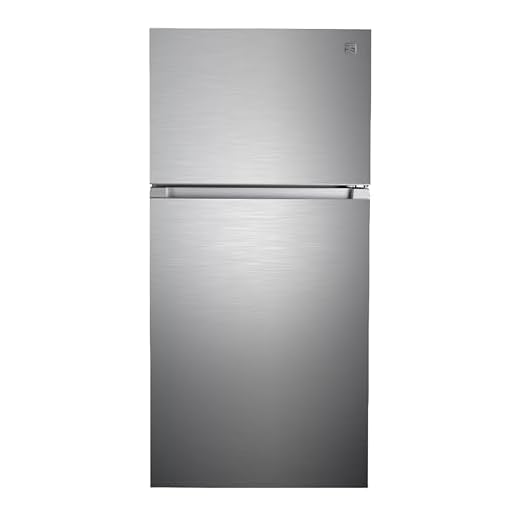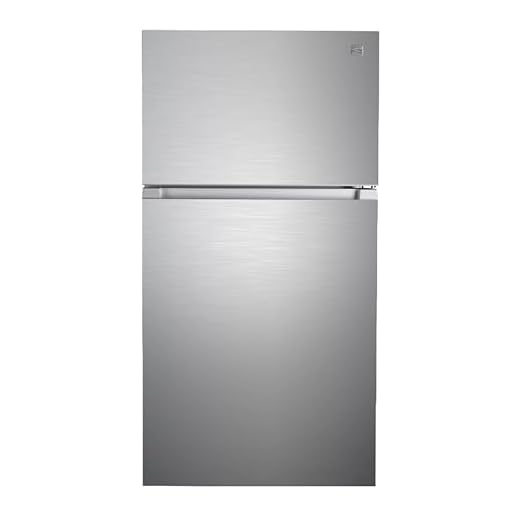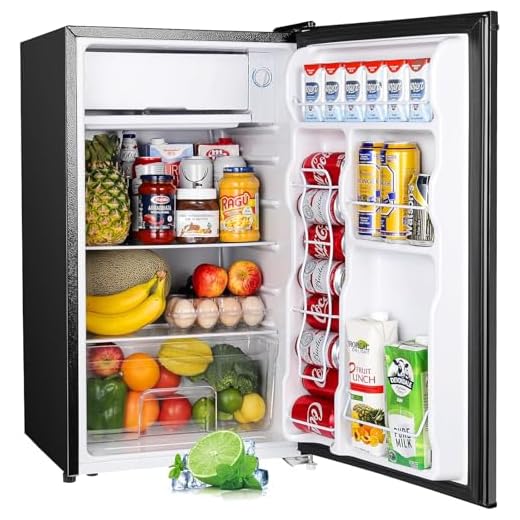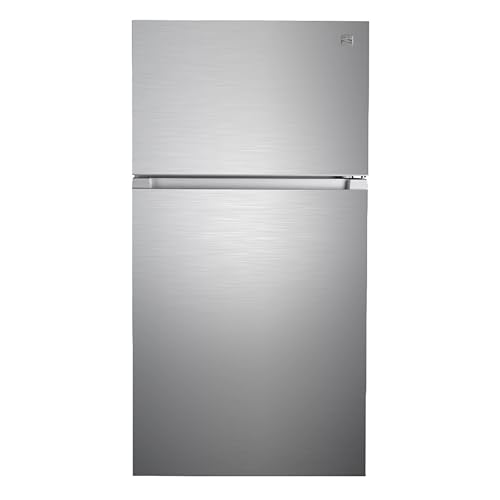



When it comes to renting a property, there are many questions that tenants may have. One common concern is whether landlords are required to provide certain appliances, such as a refrigerator. While it may seem like a basic necessity in most homes, the answer to this question varies depending on the laws and regulations in different jurisdictions.
In some places, landlords are legally obligated to provide a refrigerator as part of the rental agreement. This is often the case in areas where the law specifies that a rental property must have certain amenities or meet certain standards. These regulations are put in place to ensure that tenants have access to essential appliances and a certain quality of living.
However, in other locations, landlords are not required by law to provide a refrigerator. This means that it is up to the landlord to decide whether they want to include this appliance in the rental property. In such cases, it is important for tenants to carefully review the terms of the rental agreement and communicate with the landlord to clarify what appliances are included in the rental.
While there may not be a legal requirement in some areas, it is worth noting that many landlords choose to provide a refrigerator as a standard practice. This is because it is generally seen as a desirable amenity that can make the rental property more attractive to potential tenants. Additionally, providing a refrigerator can also help landlords attract responsible and long-term tenants who are more likely to take care of the property.
Understanding Landlord Responsibilities
When renting a property, it’s important for both landlords and tenants to understand their respective responsibilities. The landlord has certain obligations to ensure the property is safe, habitable, and in compliance with local housing laws.
Here are some key responsibilities that landlords typically have:
- Maintaining the property: Landlords are responsible for keeping the property in good condition, making any necessary repairs, and ensuring that it meets basic structural and safety standards.
- Ensuring safety: Landlords must provide a safe living environment for tenants. This includes ensuring that the property has proper ventilation, adequate heating and cooling systems, and working smoke detectors. Landlords should also address any potential safety hazards promptly.
- Providing essential amenities: Landlords are generally required to provide essential amenities that are necessary for basic living, such as water, electricity, and heating. Depending on local laws and regulations, they may also be required to provide additional amenities, such as a refrigerator, stove, or dishwasher.
- Addressing maintenance issues: If a tenant reports a maintenance issue, such as a leaky faucet or a broken appliance, the landlord is generally responsible for addressing and repairing the issue in a timely manner. Failure to do so may result in further damage or inconvenience to the tenant.
- Respecting tenant privacy: Landlords should respect their tenants’ privacy rights and obtain proper consent before entering the rental property. There are usually laws in place that specify when and how a landlord can enter a tenant’s unit.
- Handling security deposits: Landlords are responsible for handling and returning security deposits in accordance with local laws. This may include providing an itemized list of deductions, if any, and returning the remaining amount within a specified timeframe.
It’s important for tenants to be aware of their rights and communicate with their landlord if they have any concerns or issues. Likewise, landlords should stay informed about their legal obligations and proactively address any problems that arise.
By understanding and fulfilling their respective responsibilities, both landlords and tenants can contribute to a positive renting experience.
Providing Essential Appliances
When renting a property, one of the most common concerns for tenants is whether or not the landlord is required to provide essential appliances such as a refrigerator. While the specific requirements may vary depending on the jurisdiction and rental agreement, it is generally expected that landlords provide certain appliances to tenants.
One of the key appliances that landlords are typically expected to provide is a refrigerator. This is because a refrigerator is considered an essential appliance for daily living and is necessary for storing food and keeping it fresh. Without a refrigerator, tenants would have to rely on alternative methods for storing perishable items, which can be inconvenient and sometimes impractical.
In addition to a refrigerator, landlords are often also expected to provide other essential appliances such as a stove or oven. These appliances are necessary for cooking and preparing meals, and without them, tenants would have to rely on other means such as eating out or using alternative cooking methods.
It is important to note that the specific requirements for landlords to provide appliances may vary depending on the local laws and regulations. Some jurisdictions may require landlords to provide certain appliances as a standard part of the rental agreement, while others may not have any specific requirements. Therefore, it is important for tenants to familiarize themselves with the local laws and regulations regarding appliance provision when renting a property.
If a landlord fails to provide essential appliances as required by the rental agreement or local laws, tenants may have legal recourse. They may be able to take action to enforce their rights and ensure that the landlord fulfills their obligations. This could include filing a complaint with the relevant government agency or pursuing legal action in court.
In conclusion, landlords are generally expected to provide essential appliances such as a refrigerator and stove or oven to tenants. However, the specific requirements may vary depending on the jurisdiction and rental agreement. Tenants should familiarize themselves with the local laws and regulations to ensure that their rights are protected.
Refrigerator Requirements for Rental Properties
When it comes to rental properties, the question of whether landlords are required to provide a refrigerator may vary depending on the specific rental laws and regulations in your jurisdiction. However, in many places, landlords are not legally obligated to include a refrigerator as part of the rental property.
While it may not be a legal requirement, providing a refrigerator can be seen as a desirable feature for rental properties. Many tenants expect to have access to a refrigerator in their rental units, and not having one could make your property less attractive to potential tenants.
When deciding whether to include a refrigerator in your rental property, consider the market demand, the type of property, and the expected rental price. In some cases, providing a refrigerator may give you a competitive advantage and help you attract and retain tenants.
If you do decide to provide a refrigerator, it is important to ensure that it is in good working condition. Regular maintenance and servicing of the refrigerator can help prevent any issues and avoid potential disputes with tenants.
When including a refrigerator in your rental property, you should also be clear about your expectations regarding its use and maintenance. This can include guidelines for defrosting, cleaning, and any repairs or replacements that may be necessary in case of damage caused by the tenant’s negligence.
It is worth noting that in some jurisdictions, landlords may be required to provide a fridge if they advertise the property as having one or if it is common practice in the area. Therefore, it is important to familiarize yourself with the rental laws and regulations in your specific location.
In conclusion, while landlords are not usually required to provide a refrigerator in rental properties, it can be a beneficial feature that can attract tenants. If you do decide to include a refrigerator, make sure to properly maintain it and clearly communicate your expectations regarding its use and maintenance to your tenants.
Legal Obligations of Landlords
When it comes to renting a property, landlords have certain legal obligations they must fulfill. These obligations are in place to protect the rights and safety of tenants. Here are some key legal obligations that landlords must adhere to:
Providing a Safe and Habitable Property
One of the primary legal obligations of landlords is to provide tenants with a safe and habitable property. This means ensuring that the property meets all the necessary health and safety requirements, such as providing proper ventilation, functioning utilities, and maintaining a structurally sound building.
Landlords are responsible for making repairs and addressing any issues that affect the habitability of the property. This includes fixing plumbing or electrical problems, addressing pest infestations, and maintaining a safe and secure environment.
Maintaining Essential Amenities
Another legal obligation of landlords is to provide and maintain essential amenities. This includes providing basic utilities such as water, heating, and electricity. Landlords are typically responsible for covering the cost of these utilities unless otherwise stated in the rental agreement.
In addition to utilities, landlords may also be required to provide certain appliances or fixtures, depending on local laws and regulations. This may include items such as a stove, refrigerator, or air conditioning unit. However, the specific requirements can vary depending on the location.
It’s important for tenants to carefully review their rental agreement and familiarize themselves with the specific obligations of their landlord.
Respecting Tenant Privacy
Landlords are also legally obligated to respect the privacy of their tenants. They must provide reasonable notice before entering the rental property, except in cases of emergency. This allows tenants to have privacy and feel secure in their own living space.
Landlords should only enter the property for necessary reasons, such as performing repairs, inspecting the property, or showing it to potential new tenants. They must also respect any restrictions on access outlined in the rental agreement.
In conclusion, landlords have legal obligations to provide a safe and habitable property, maintain essential amenities, and respect tenant privacy. It’s important for both landlords and tenants to understand and fulfill these obligations to ensure a positive and legally compliant rental experience.
Rental Agreements and Refrigerator Provisions
When it comes to rental agreements, the provision of a refrigerator varies depending on the specific terms outlined in the agreement. Landlords may or may not be required to provide a refrigerator, depending on local laws and the details of the lease agreement.
In some areas, landlords are required by law to provide a working refrigerator as part of the rental property. This ensures that tenants have access to a basic necessity for storing food and maintaining their living conditions. Landlords who fail to provide a refrigerator when required may face legal consequences and penalties.
However, in other areas, there may be no specific laws or regulations that require landlords to provide a refrigerator. In these situations, the responsibility falls on the tenant to provide their own refrigerator if they desire one. This means that the tenant will be responsible for purchasing, installing, and maintaining the refrigerator themselves.
It’s important for both landlords and tenants to carefully review the terms of the rental agreement to determine whether a refrigerator is included or not. This information should be clearly stated in the lease agreement, specifying the presence or absence of a refrigerator and any conditions regarding its use and maintenance.
| Landlord’s Responsibilities | Tenant’s Responsibilities |
|---|---|
| Providing a working refrigerator, if required by law or specified in the agreement. | Purchasing, installing, and maintaining their own refrigerator if not provided by the landlord. |
| Repairing or replacing the refrigerator if it becomes faulty due to normal wear and tear. | Properly using and caring for the provided refrigerator (if applicable) to prevent damages. |
| Ensuring that the refrigerator is in good working order before the start of the tenancy. | Notifying the landlord promptly if the provided refrigerator becomes faulty or needs repair. |
In summary, the provision of a refrigerator in rental agreements depends on the local laws and the terms agreed upon by the landlord and tenant. It’s essential for both parties to understand the specific provisions in the rental agreement regarding the availability, maintenance, and responsibility of the refrigerator.
Landlord-tenant Negotiations and Refrigerators
When it comes to renting a property, negotiations between landlords and tenants often occur. One common negotiation point is the inclusion of appliances, such as refrigerators, in the rental agreement. While landlords are not legally required to provide a refrigerator in most jurisdictions, it is still a topic that should be discussed and agreed upon by both parties.
Tenant Perspective
From the tenant’s perspective, having a refrigerator provided by the landlord can simplify the moving process and reduce expenses. It also ensures that the tenant has a functioning appliance to store perishable items and maintain food safety. Therefore, tenants often request the inclusion of a refrigerator in their rental agreements.
However, tenants should be prepared for the possibility that the landlord may not agree to provide a refrigerator. In such cases, tenants may need to consider purchasing or renting their own appliance.
Landlord Perspective
From the landlord’s perspective, providing a refrigerator may increase the appeal of the rental property and attract potential tenants. It can be seen as an added convenience that sets their property apart from others in the market. Furthermore, if the rental property is furnished, including a refrigerator is often expected by tenants.
On the other hand, supplying and maintaining a refrigerator can involve additional costs and responsibilities for the landlord. This includes purchasing the appliance, addressing any repair or replacement needs, and dealing with any potential liability issues that may arise.
| Pros for Including a Refrigerator | Cons for Including a Refrigerator |
|---|---|
| Increases rental property appeal | Additional costs for the landlord |
| Attracts potential tenants | Responsibility for repairs and maintenance |
| Expected in furnished properties | Potential liability issues |
Ultimately, the decision to include a refrigerator in the rental agreement is a matter of negotiation between the landlord and the tenant. It is essential for both parties to openly discuss their needs and expectations and come to a mutually beneficial agreement.
Refrigerator Alternatives for Tenants
Tenants who find themselves in a rental property without a provided refrigerator may wonder about their options for keeping food fresh. While landlords are generally not required to provide a refrigerator, there are alternative solutions that tenants can explore.
Purchasing a Refrigerator:
One option for tenants is to purchase their own refrigerator. This allows them to have complete control over the size, style, and features of the appliance. However, buying a new refrigerator can be expensive, and tenants should consider the cost and logistics of transporting and installing the appliance before making a decision.
Secondhand Refrigerators:
Another cost-effective alternative is to look for secondhand refrigerators. Many online platforms and local classifieds offer used appliances at a lower price. Tenants should thoroughly inspect the appliance and ask about its age, condition, and any warranties or guarantees in place before purchasing.
Mini Fridges:
In situations where space or budget is limited, tenants can opt for a mini fridge. While they may not have the same capacity as a full-sized refrigerator, mini fridges can still store a decent amount of perishable items. Some mini fridges even come with a small freezer compartment. Tenants should keep in mind that regular maintenance and defrosting may be necessary.
Coolers and Ice Chests:
If tenants are only in need of temporary refrigeration or are constantly on the move, coolers and ice chests can be a viable option. These portable containers can keep food and beverages cool for a limited time, particularly when ice or freezer packs are used. However, tenants should be aware that these alternatives may not be as efficient or convenient as a traditional refrigerator.
Communication with the Landlord:
In some cases, tenants may be able to negotiate with their landlord to provide or reimburse the cost of a refrigerator. It is important for tenants to communicate their needs and concerns to the landlord in a respectful and clear manner. Having open and honest discussions can often lead to mutually beneficial solutions.
While landlords are not typically required to provide a refrigerator, tenants have several alternatives to explore. Whether it’s purchasing a new appliance, finding a secondhand option, or opting for smaller alternatives like mini fridges or coolers, tenants can find a solution that fits their needs and budget.
FAQ
Are landlords legally obligated to provide a refrigerator?
No, landlords are not legally required to provide a refrigerator in rental properties. The law may vary in different countries or states, but in many jurisdictions, it is not a mandatory requirement for landlords to provide appliances such as a refrigerator.
What should I do if my landlord doesn’t provide a refrigerator?
If your landlord does not provide a refrigerator, you have a few options. You can negotiate with your landlord to have one installed or ask if you can purchase one yourself and deduct the cost from your rent. Alternatively, you can consider renting a refrigerator from a third-party company or purchasing a portable refrigerator for temporary use.
Can a landlord charge extra for providing a refrigerator?
Yes, a landlord can charge extra for providing a refrigerator in the rental property. Some landlords may include the cost of appliances in the overall rental price, while others may charge an additional monthly fee specifically for providing a refrigerator. It is important to clarify any additional charges or agreements regarding appliances before signing a rental agreement.











